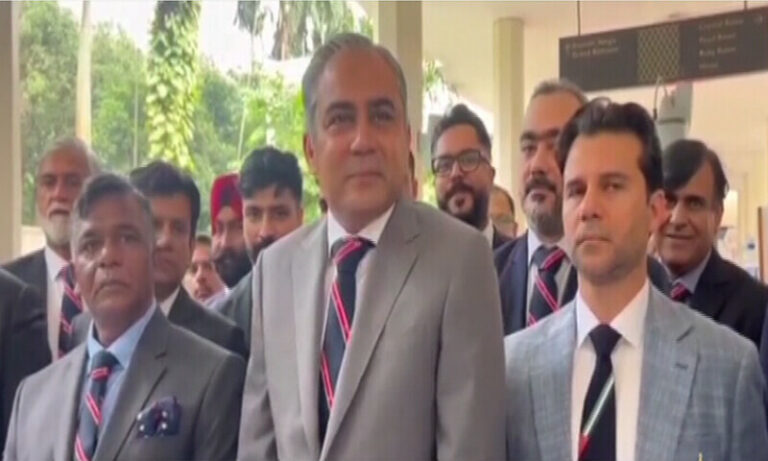In a significant show of unity, the Asian Cricket Council’s annual general meeting took place in Dhaka with full attendance from all 25 member nations, both in person and virtually. Hosted by the Bangladesh Cricket Board, the meeting came at a pivotal moment with tensions high between India and Pakistan following recent military incidents. The future of the upcoming Asia Cup—slated for September in India—remains uncertain.
READ MORE: Tim Seifert Leads New Zealand to Dominant Win Over South Africa in Zimbabwe T20 Tri-Series
Addressing the media after the session, PCB Chairman and ACC President Mohsin Naqvi expressed satisfaction with the outcome of the meeting. He described it as productive and collaborative, praising the positive environment. Naqvi noted that despite a few members attending remotely—including the BCCI—participation was complete, and all decisions were made collectively in the interest of cricket.
When asked about India’s virtual attendance, Naqvi dismissed concerns, explaining that it’s common for logistical or political reasons to affect travel, recalling an instance where he, too, couldn’t attend a prior meeting in Singapore. He remained optimistic that dialogue between the PCB and BCCI would soon yield clarity on the Asia Cup’s format—whether hosted in India, Pakistan, or under a neutral arrangement like the previously used hybrid model. The UAE is being considered as a likely alternative venue.
Naqvi reiterated that all members were committed to ensuring politics did not interfere with the sport. He emphasized the ACC’s collective vision of strengthening cricket throughout Asia, urging cricketing nations to act as one team. “Our unity lies in cricket, not politics,” he said during a reception hosted by the BCB. He encouraged member boards to work together and uplift associate nations, noting that any victory by one was a win for all.
During the AGM, the council approved a comprehensive schedule for 2025–2026 and confirmed cricket’s inclusion in the 2026 Asian Games in Japan. Ten men’s and eight women’s teams will compete, selected based on continental rankings. The ACC also welcomed three new members—Mongolia, Uzbekistan, and the Philippines—marking a significant step toward expanding cricket’s presence in emerging regions.
Later, in discussions with Bangladesh’s Minister for Youth and Sports, Asif Mahmood, Naqvi explored opportunities for joint development in sports, youth training, and education. Both sides agreed to sign a memorandum of understanding between their cricket boards to promote bilateral cooperation. This includes umpire exchange programs, technical support, and special initiatives focused on women’s cricket development.
The talks extended beyond cricket. The leaders discussed collaborative efforts in youth empowerment, scholarship opportunities, and sharing expertise in educational reforms. Pakistan offered support in areas such as solar energy innovation, showcasing its experience in sustainable technology. Naqvi also introduced Pakistan’s advancements in identity infrastructure, particularly through Nadra, sparking interest from the Bangladeshi side, who expressed intent to send a high-level delegation to explore collaboration further.
Naqvi emphasized that the youth demographic in both nations offers a unique opportunity for shared growth. “By working together on sports, skills, and education, we can unlock new futures for our young populations,” he said.
The outcomes of the meeting suggest a renewed commitment across Asia to prioritize cricketing excellence while deepening cooperation in other areas of mutual interest. As for the Asia Cup, a formal announcement is expected soon, with all stakeholders appearing inclined toward a diplomatic and cricket-focused resolution.


